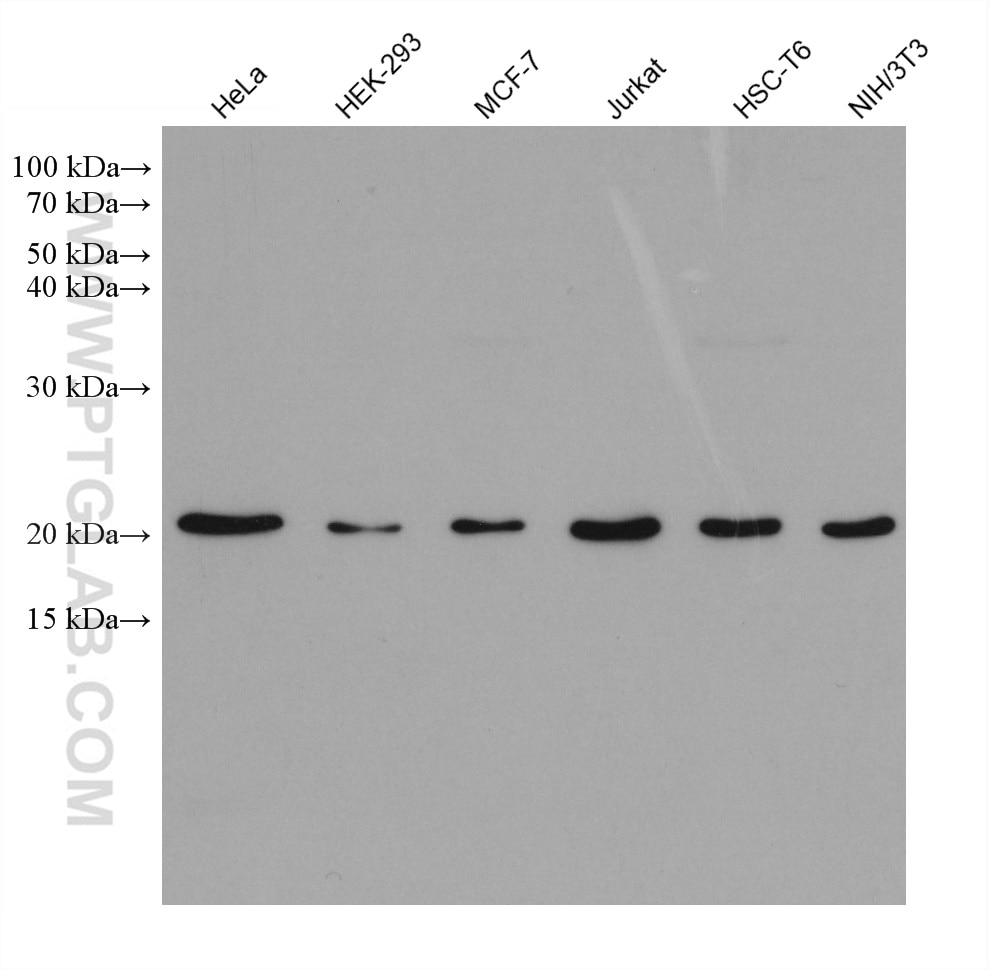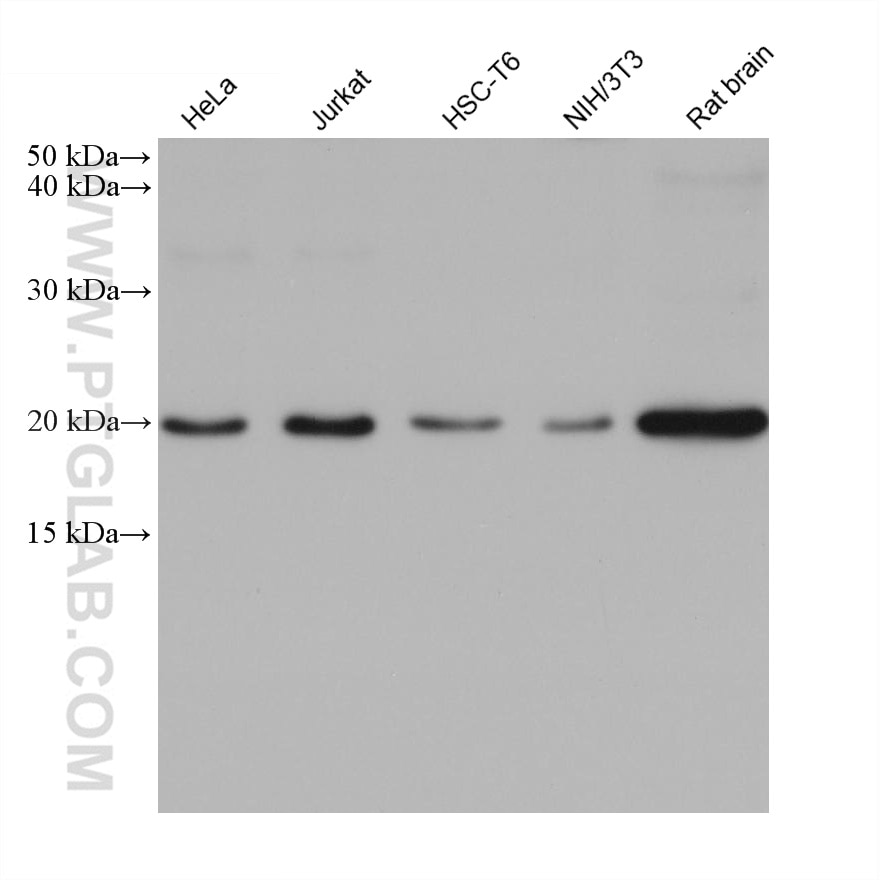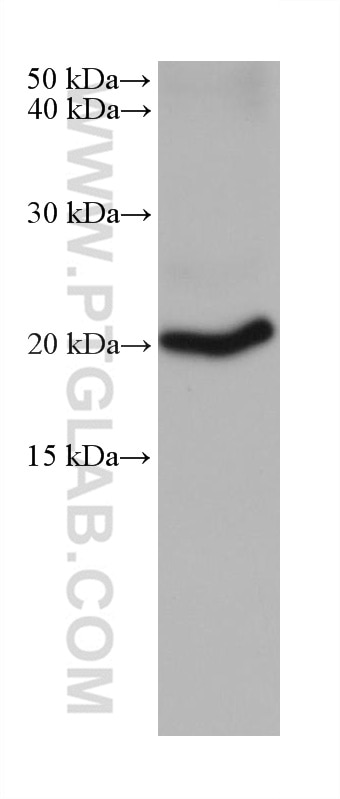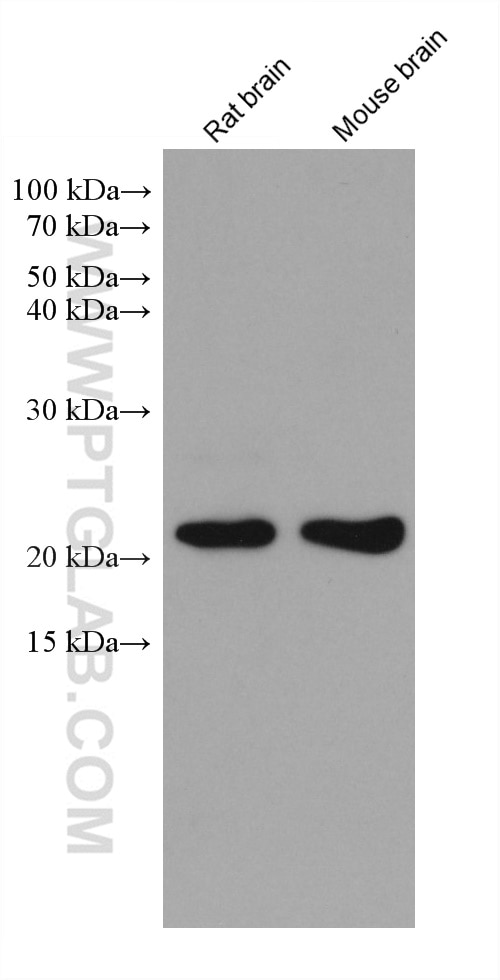Tested Applications
| Positive WB detected in | HeLa cells, rat brain tissue, mouse cerebellum tissue, HEK-293 cells, MCF-7 cells, Jurkat cells, HSC-T6 cells, NIH/3T3 cells, mouse brain tissue |
Mouse monoclonal antibodies of IgM isotype can be detected with "anti-mouse IgG (H+L)" secondary antibodies.
Recommended dilution
| Application | Dilution |
|---|---|
| Western Blot (WB) | WB : 1:5000-1:20000 |
| It is recommended that this reagent should be titrated in each testing system to obtain optimal results. | |
| Sample-dependent, Check data in validation data gallery. | |
Product Information
67212-1-Ig targets CDC42 in WB, ELISA applications and shows reactivity with human, mouse, rat samples.
| Tested Reactivity | human, mouse, rat |
| Host / Isotype | Mouse / IgM |
| Class | Monoclonal |
| Type | Antibody |
| Immunogen | CDC42 fusion protein Ag28550 Predict reactive species |
| Full Name | cell division cycle 42 (GTP binding protein, 25kDa) |
| Calculated Molecular Weight | 21 kDa |
| Observed Molecular Weight | 21 kDa |
| GenBank Accession Number | BC002711 |
| Gene Symbol | CDC42 |
| Gene ID (NCBI) | 998 |
| RRID | AB_2918484 |
| Conjugate | Unconjugated |
| Form | Liquid |
| Purification Method | Caprylic acid/ammonium sulfate precipitation |
| UNIPROT ID | P60953 |
| Storage Buffer | PBS with 0.02% sodium azide and 50% glycerol, pH 7.3. |
| Storage Conditions | Store at -20°C. Stable for one year after shipment. Aliquoting is unnecessary for -20oC storage. 20ul sizes contain 0.1% BSA. |
Background Information
Cdc42, the human homologue of the cell division cycle 42 of Saccharomyces cerevisiae, belongs to the Rho/Rac subfamily of Ras-like GTPases. It acts as molecular switches to regulate numerous cellular responses including the organization of the actin cytoskeleton, gene transcription, cell cycle progression, and membrane trafficking
Protocols
| Product Specific Protocols | |
|---|---|
| WB protocol for CDC42 antibody 67212-1-Ig | Download protocol |
| Standard Protocols | |
|---|---|
| Click here to view our Standard Protocols |









